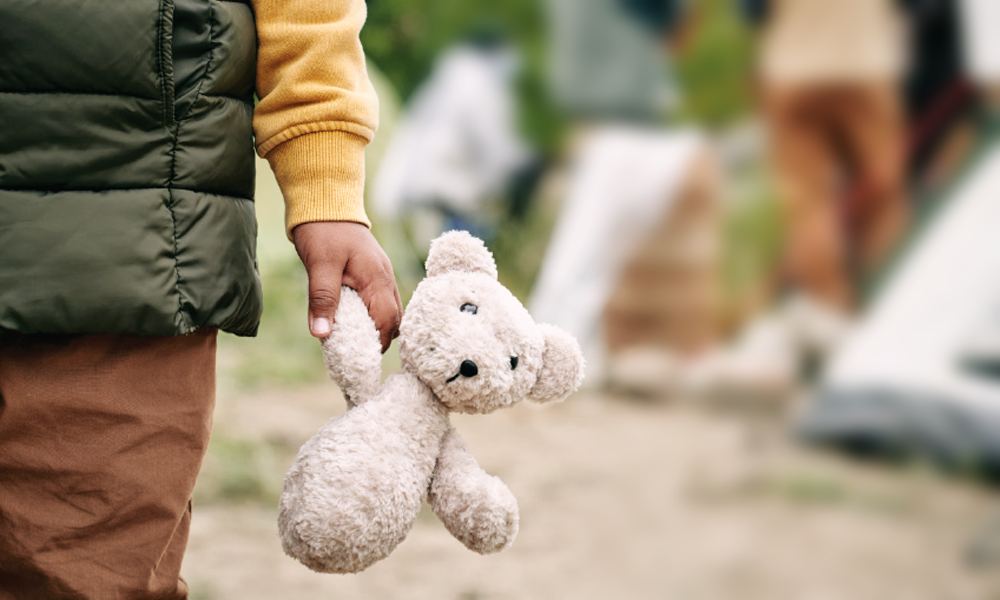
How Can Families Practice the Works of Mercy? - Shelter the Homeless
“I was hungry and you gave me food, I was thirsty and you gave me drink, a stranger and you welcomed me, naked and you clothed me, ill and you cared for me, in prison and you visited me.”
Jesus’ powerful words in the Gospel of Matthew form the basis for the traditional list of the works of mercy. When it comes to meeting physical needs, the Compendium to the Catechism of the Catholic Church lists the following actions as the corporal works of mercy:
“I was hungry and you gave me food, I was thirsty and you gave me drink, a stranger and you welcomed me, naked and you clothed me, ill and you cared for me, in prison and you visited me.”
Jesus’ powerful words in the Gospel of Matthew form the basis for the traditional list of the works of mercy. When it comes to meeting physical needs, the Compendium to the Catechism of the Catholic Church lists the following actions as the corporal works of mercy:
- Feed the hungry
- Give drink to the thirsty
- Clothe the naked
- Shelter the homeless
- Visit the sick
- Visit the imprisoned
- Bury the dead
How can families live this out? Especially with young children, hands-on charitable work can be daunting, but not impossible. The works of mercy will look different for each family – and can be practiced very literally when it comes to caring for children! But if you have a desire to introduce your children to acts of charity outside the home, I hope these ideas can be a gentle nudge to step out as the domestic Church and seek encounters with those in need.
Shelter the homeless
How can the average family take steps to harbor the homeless – to provide a safe place for the vulnerable to lay down their burdens and rest?
Ideas for families
Over the past year, my family has been involved with our local Catholic Charities’ refugee services. In early 2022, we were introduced to a family of Afghan refugees who’d fled their country after the Taliban takeover that summer. Our tasks as their volunteer mentors have ranged from teaching the English alphabet to helping them navigate the labyrinth of the Medicaid system. I quickly learned that “sheltering the homeless” in this way came with relationship and realized my being a mother of young children could actually be an asset, not a hindrance, to practicing the works of mercy.
During a story time for the refugee children living in temporary housing with their families, I saw many mothers’ faces light up when I said we, too, had a large family. And it opened my eyes to other scenarios where families might serve as God’s ambassadors of mercy because of who they are, not in spite of it. Perhaps your community also has people who’ve been uprooted from their home countries and your family might be able to meet some of their needs.
There will always be a need for families to open their homes to the most vulnerable children in their communities through foster care. If God is not calling your family to this particular work of mercy, you can still support those who do. Treat new foster parents in your community the same way you would any parents bringing a baby home from the hospital, starting with the offer of meals and other items they might need. Depending on the foster agency’s rules, childcare could also be a huge support and appreciated respite. If that isn’t possible, offer to watch the foster parents’ other children.
When you host playdates or invite your child’s lingering friend to stay for dinner, remember that this, too, is an extension of offering shelter and welcome. Your guests aren’t literally homeless, but maybe the young mom next door is at the end of her rope and craving friendship. Can you offer coffee, conversation, and a safe, judgment-free place for her toddler to make a mess? Or maybe that classmate is missing a parent after a divorce, or is feeling the impact of a stressful situation at home. Your own house and family don’t need to be perfect to make a difference.
Elizabeth Hansen and her husband, Luke, raise their four children in Lansing, where they attend Resurrection Parish.



